#soldier was sent by the french women i know it
Text
decided to draw sum suff for my fem fortress sims game

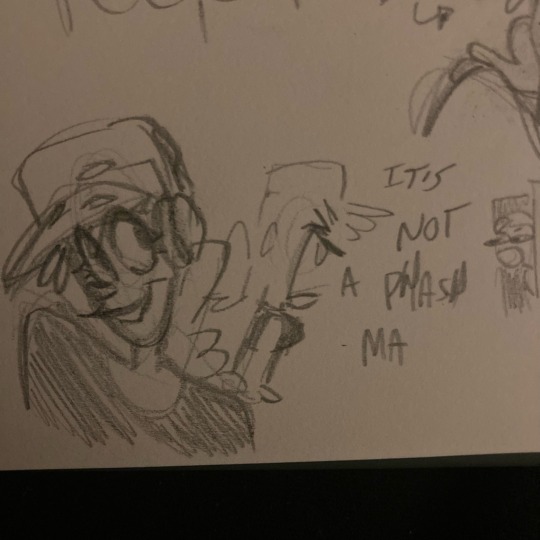

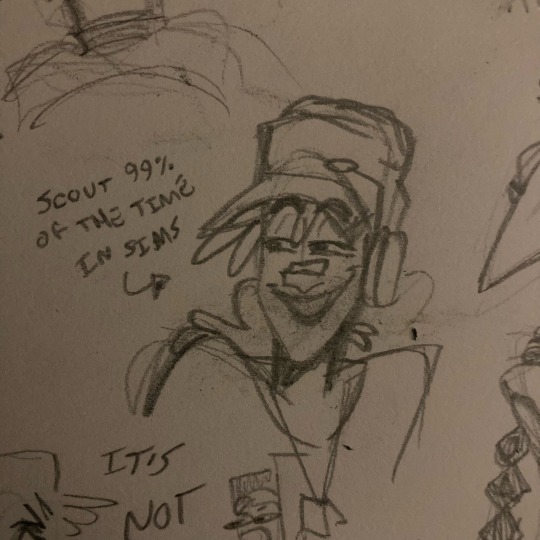
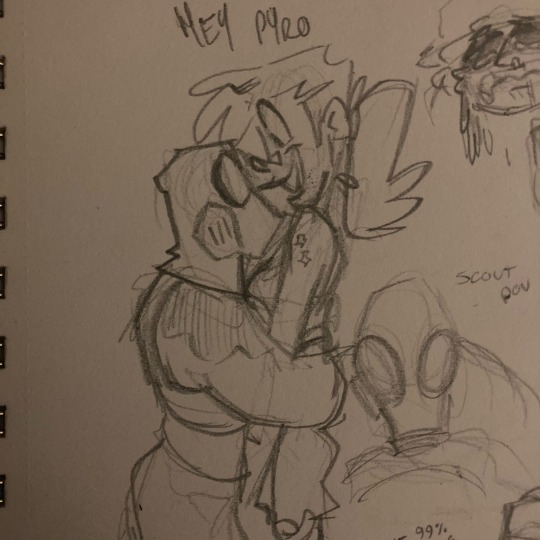
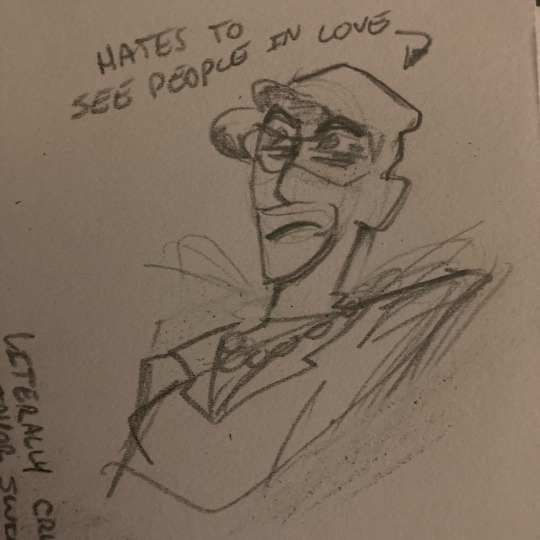
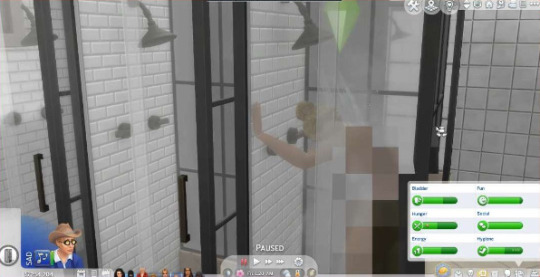
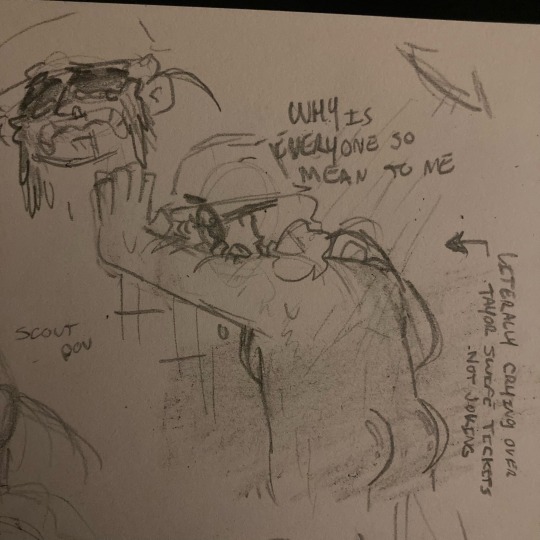
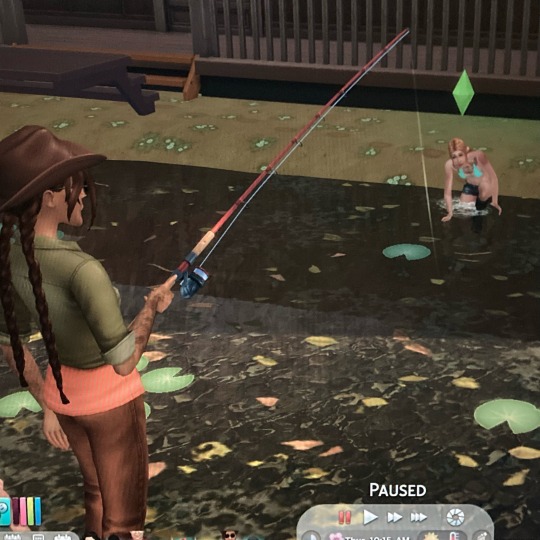
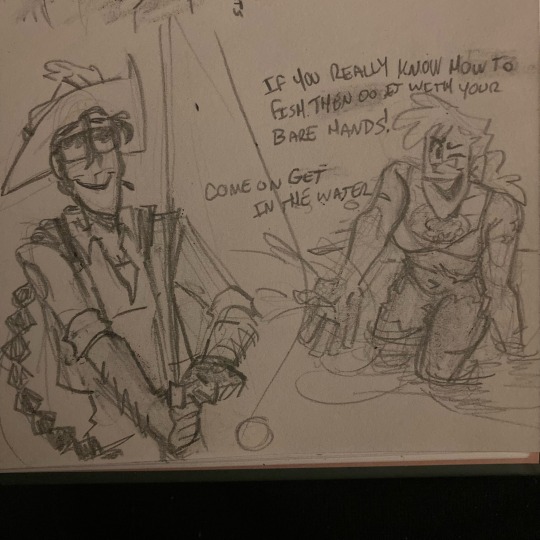
#tf2#fem fortress#totally didn't make them all women because i didn't have all the cc to make them guys- AHAH noooo#i covered it up but#tw nudity#its engie crying in the shower over a nightmare of not getting some tickets on time#what can i say mods makes things interesting#fem scout#fem sniper#fem spy#pyro tf2#fem soldier#sniperscout#speeding bullet#soldier was sent by the french women i know it
146 notes
·
View notes
Text
Predictions for Nocturne
(some serious speculation, some silly)

Imagining that one scene from Symphony of the Night where Alucard ends up fighting the fake Trevor, Sypha and Grant (Greta.) Cause him being in a situation where he has to kill an enemy that looks, acts, and fights exactly like the people he loved three centuries ago seems suitably heart-wrenching.

Wondering if Nocturne's going to partially follow the plot of Symphony where Richter is captured and controlled by Shaft the dark priest, so Maria and Alucard are searching for him. I'm basing this solely off the female voice in the teaser (possibly Maria?) saying, "We're looking for someone called Belmont."
So Richter's character arc would be him attempting to regain his honor after all the harm he caused under Shaft's influence?

Part of me legitimately wonders if St. Germain is gonna be back. Yes, this is a nod to his Curse of Darkness design, but his clothes here are not medieval. (More Victorian than anything?)
Nocturne is supposed to take place during the French Revolution, the first of three beginning in 1789. The top hat is believed to have been invented in 1793. French gentleman wearing the latest fashion?
The series never specifically says St. Germain is from the same time period he wound up in after his first encounter with the Infinite Corridor. Is this why he knows about stuff like toilet paper and is constantly looking down his nose at all the filthy medieval people? Is he just being a whiny bitch about being sent back in time?
He tells Trevor that he knew his family. Is this because he met the descendants? (I suppose this could be his twisted reconciliation about betraying them since he's seen the 'future' and he knows the line endures and Alucard is still alive.)
This is wild speculation that probably won't be the case, but I kinda really want this to happen since Alucard's reaction to a human he thought was dead for three centuries just casually showing up out of nowhere would be priceless.

The French Revolution was the era of powdered wigs and shockingly fabulous courtly decadence and the Queen having a frickin' boat in her hair.
If we don't get at least one vampire (or Belmont) in a stupidly ostentatious wig, then what are we even doing?
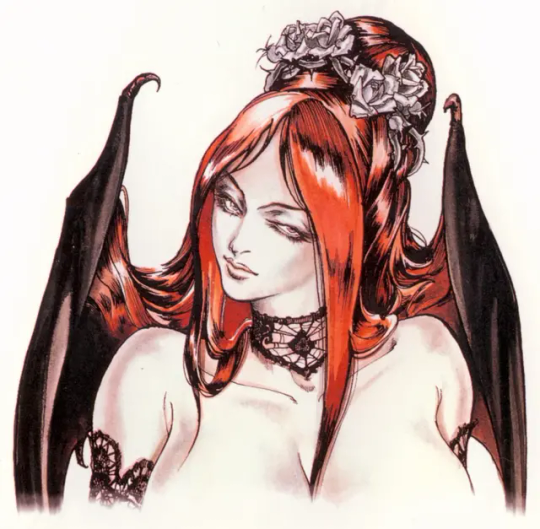
Two schools of thought in my head:
Hoping Nocturne also does not include the Succubus as an overtly sexualized character in the interest of not objectifying women.
On the other hand, a discomfited Alucard looking the demon lady right in the eye and saying, "Madam, kindly remove yourself from my personal space," is a very humorous image.
On a more serious note, there is also the Nightmare scene in Symphony of the Night to consider where the Succubus shows Alucard a vision of his mother right before her execution in an attempt to trick him, so there's potential for a, "How dare you make me relive that!" moment.

Can these two come back? They did not get enough screen time in the first round.
Striga's last line to their soldiers is an order to ride west. France is west.
Also, is it really an accident that Morana's hairstyle in Season 4 is a French twist? Foreshadowing....
#castlevania#richter belmont#alucard tepes#trevor belmont#sypha belnades#st germain#morana and striga#castlevania netflix#castlevania nocturne#symphony of the night#predictions for nocturne#speculation#belmont family#french revolution#powdered wigs#castlevania vampires#shaft
255 notes
·
View notes
Note
Did you know during the Spanish Civil War, Moroccan soldiers who were allied with Franco would have rape "camps" for captured (or not) Republican women? One the most well-known perpetrators of such "campaigns" was Mohammed Mizzian, who was close friend of Franco, and after independence in 1956, he was personally invited by king Mohammed V to lead the newly Moroccan Army, and today even has a museum in his honour in Rabat..
And now the same thing is happening to Sahrawi women in the occupied territories.
Without removing anything from this type of horrors, that’s a very difficult subject for one simple reason. Part of Morocco was a Spanish colony.
Colonizers do use soldiers from the colonies to do horrific things. For example in Algeria a non negligible part of the soldiers who were sent by France to kill Algerians during the massacres of Setif, Guelma and the rest of the region, leading to the slaughter of 45000 Algerians, were Black infantrymen from other colonies. During the war against Vietnam keeping them from gaining their independence, some of the troops sent by France were Africans (Mostly Moroccan and Black men but they eventually started using them less and less because they were deserting the French army to join the Vietnamese revolution). Even without making them join the army France tried really hard to create division and use the colonized against each other. For example whenever Algerians organized an uprising the people would get arrested and either sentenced to death by guillotine or to forced labor and exile. For the “biggest” uprisings (excluding the war of liberation) they tended to avoid execution because they didn’t want to turn them into Shouhada in the eyes of the people. So the French often sentenced them to forced labor and exile. The exile always happened in other French colonies because the goal was also to use the Algerians to outnumber the indigenous people. Trying to turn the Algerians exiled into foot soldiers for French colonialism in those places (which didn’t work as well as planned but still).
So the colonized being forced to join the colonizers army and committing horrors in said army either by force or by choice is a subject that’s very complicated in my opinion. I don’t think they should be absolved of everything they did but I also don’t think they should be judged without taking into account the context. They were Black and Brown men at a time were refusing to fight for France could have easily gotten them under a guillotine. We all would love to think we would have chosen the guillotine over committing these horrors but the truth is we (myself included) don’t actually know what we would have done.
On top of it people (not saying that’s what you’re doing) LOVE to mention what the colonized did in the colonizer’s army while pretending white soldiers were not worst. So the colonized joining the colonizers armies is a very complicated subject in my opinion and not something I feel knowledgeable enough to talk about at length to condemn it.
That being said rape is definitely something that Morocco uses against the Sahrawi women. They also send tons of rape threats to Sahrawi and Algerian women online who dare be vocal against the occupation of Western Sahara. And this time they aren’t an army forced to act because the colonizers said so. They are not forced to join the army either. So there is absolutely no nuance. In this case they are the colonizers and they are hurting the colonized in horrific ways.
42 notes
·
View notes
Text
Everyone gets lost in Cillian Murphy’s eyes. At the end of his latest film, “Oppenheimer,” in which he plays the titular character, Oppenheimer stands alone, staring at the pattern of rain droplets over a still pond. As the camera lingers on his face, a ring of fire begins to consume the Earth, and an immense blaze fills the whole scene. Not a sound is uttered, but the emotion conveyed in those piercing blue eyes speaks louder than words.
Murphy’s eyes that speak surely bring the character of Oppenheimer to life, even in the black and white parts of the film. “I try not to think of actors as I write, but Cillian’s eyes were the only eyes I know that can project that intensity,” Nolan said to the New York Times. This is their sixth collaboration, but the first time Murphy has played the lead. With “Oppenheimer” surpassing $900 million at the global box office — becoming one of the most acclaimed biopics to date — audiences have become as eager to learn about it’s as they are about the father of the atomic bomb.
Even though it took Hollywood a while to recognize Murphy’s potential to play a starring role, this quietly intense actor has long been celebrated in the UK and Ireland. A survey of his portfolio since his debut in 1996 reveals a daring selection of characters: Jackson Ripper, a terrorist leader in “Red Eye;” Fischer, the heir to a multi-billion empire in “Inception;” Daniel O’Donovan, an Irish republican in “The Wind That Shakes the Barley;” an anonymous, shivering soldier in “Dunkirk.” None of these names carry the same fame as the legendary physicist J. Robert Oppenheimer on screen today, but Murphy honored them all.
In order to get ready for the part of Patrick “Kitten” Barden, Murphy spent weeks working with a real-life drag queen, who took him clubbing with friends so he could study women’s body language and learn how to dress. To be able to convincingly act out Tommy Shelby, a WWI veteran, he followed a hard-hitting workout plan to look “physically imposing” for the part. The quest to achieve Oppenheimer’s chiseled cheeks and a haunted look took him to the opposite end of the spectrum. According to costar Emily Blunt, on set he would only eat one almond a day to slim down and was so immersed in the role that he skipped cast dinners. According to Murphy, “It’s not the scale, it’s the quality.” For him, great dedication is necessary in order to fully embody his characters.
Clearly, his hard work has paid off. Murphy is now the 5/4 favorite to win Best Actor at the 2024 Oscars for his performance in “Oppenheimer,” as predicted by The Online Betting Guide, and his last role as Tommy Shelby in “Peaky Blinders” earned him his first BAFTA TV Awards nomination for Leading Actor. Prior to this, he also received a Golden Globe Award nomination for Best Actor in a Musical or Comedy for his role as a transgender woman in “Breakfast on Pluto.”
Yet Murphy did not always know he wanted to be an actor, and it took him a long time to discover his life-long passion. His father was a civil servant and his mother a French teacher, but the house was always busy — non-stop music, bookshelves filled with literature, and the radio often on. His parents sent him to an all-boys private school, where he was involved in rugby for some time before giving it up. Then, he tried for a law degree at University College Cork, but he quit that too. He devoted years to doing what his parents wished for, not necessarily what he wanted, and “he didn’t feel good enough.” After that, he had a fleeting music career before a stage production of “A Clockwork Orange” guided him to his true passion — acting.
His first breakthrough came in the 2002 movie “28 Days Later,” where he played Jim, the lone survivor of a pandemic in a desolate London. It was a modern horror classic which served as a launching pad for Murphy’s career, with Nolan later recalling the poster of Murphy with his bald head and “crazy” eyes in a conversation for Entertainment Weekly. His profile continued to grow in 2005 following his roles in several successful films, namely the Scarecrow in “The Dark Knight” and the villain in the action thriller “Red Eye.” For the last two decades, he has built strong relationships with directors such as Boyle and Nolan and continuously wowed audiences with his talent for playing dark, troubled, and tormented characters. But these complex characters are not strictly villains. As Murphy said in an interview with The Guardian, “Villains are good if they’re well written, but if it’s one note or a trope, then they are dull.” He relishes playing these complex characters and likes scripts to stretch into “all the shades” of the human spectrum.
“I can’t remember which director said it, but he said it takes 30 years to make a good actor,” he said to PORT Magazine. 27 years later, coming off the heels of a starring role in a major film, Murphy appears to have achieved his aim.
In an industry that often rewards fast success, Cillian Murphy has chosen a different path. “Peaky Blinders” made the Irish actor a household name, and Nolan’s blockbuster epic took him even further. However, Murphy continued to pursue roles which were often underrated, because it is “a film that you're very sort of proud of and excited by.” Known for his introverted personality, Murphy has chosen a quiet, normal life away from the public eye, even revealing at one point that he did not enjoy the “personality part” of being an actor. “I don’t understand why it’s expected I’ll be scintillating on a talkshow,” he said in an interview with The Guardian. He is true to his word — Murphy’s bored face during interviews has become a popular meme. Indeed, 67 million people on TikTok have watched videos on “Cillian Murphy interview zoning out,” and they can’t seem to get enough of his dissociating clips. Part of his appeal to fans seems to stem from this authenticity, in contrast with so many other celebrities who aim to please.
To Murphy, character is in fact all that matters. Murphy is satisfied with being the man in the shadows, and though he may not be as flashy as Tommy Shelby with “that charisma and swagger,” he believes that this shows that “I’m doing my job” correctly. “Cillian and Tommy are almost polar opposites,” Steven Knight, the “Peaky Blinders” creator, attested in an interview with Esquire.
As recounted in the Esquire interview, when Murphy auditioned for the role, Knight doubted whether this very thin man was the right fit for a Bringham-based gangster. Murphy said a simple yet powerful thing then: “Remember, I’m an actor.” His point was that when he enters a room, he is not Tommy Shelby. But when he is acting, he can become anyone — a gangster, a woman, or a physicist.
What is so mesmerizing about Murphy’s eyes? It is not the color, but the complex, varied emotion that is seen in each glimpse. Murphy can draw people into a story and make them think twice about it afterwards. While he has worked for close to thirty years in the acting industry, making him one of the most prolific actors, neither the standard film crew hierarchy nor his fame will keep him from choosing what truly captivates him. His success is a natural result of his unwavering pursuit and love of the craft.'
#Cillian Murphy#Steven Knight#Tommy Shelby#Peaky Blinders#Oppenheimer#Christopher Nolan#Breakfast on Pluto#Jim#28 Days Later#Jackson Rippner#Red Eye#Robert Fischer#Inception#Damien O'Donovan#The Wind That Shakes The Barley#Dunkirk#Patrick “Kitten” Braden#Emily Blunt#Golden Globes#BAFTA#Oscars#The Dark Knight#Scarecrow
34 notes
·
View notes
Text
The Magnificant Seven in September 1914
Brave men and women from my new book
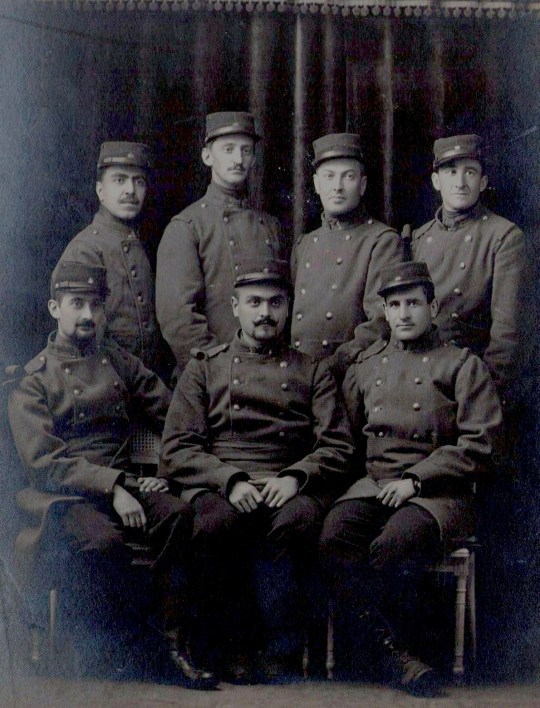
Rare photo of the Americans who persuaded their countrymen to go to war for France 954 days before their country did.
Seven American volunteers photographed in September 1914 in Toulouse in France a month after they had joined the French Foreign Legion and a few weeks before they were sent to the front. It was an amazing lot that only a war can bring together. I think I have identified them: (standing) Georges Casmeze, a businessman who took the initiative to summon the American volunteers when France went to war; Charles Sweeny, a soldier-of-fortune and later friend of Hemingway; Jack Casey, a talented artist from San Francisco, who did some wonderful sketches of his comrades in the trenches; Bert Hall, a talkative adventurer of many trades; (sitting) James Stewart Carstairs, a rich artist and art collector who committed suicide; William Thaw, son of one of America’s richest families and finally James Bach, a mechanical engineer who in 1915 with Hall and Thaw joined the famous Escadrille Lafayette.
The seven men in the photo belonged to a group of 44 American volunteers, who joined the Foreign Legion in Paris in August 1914. After years of research, I know the personal history of each of these men, and in my new book “Fighting for The French Foreign Legion”, I try to tell how every one of them gave a valuable contribution to modern history, and strengthened relations between France and America.
#fighting for the french foreign legion#french foreign legion#ww1#la Grande Guerre#american volunteers 1914#nils elmark#William Thaw#Charles Sweeney#Jack Casey#Bert Hall#stewart carstairs#James Bach
30 notes
·
View notes
Text
5 Trivia about The Last Samurai

Although The Last Samurai is known to be historically inaccurate, I realized that some part of it does make sense but the producers just tried to simplify it for the audience as not everyone knows the complex history of Japan.
1. Katsumoto and Hasegawa

They fought together for the Emperor but now they fight on opposing sides.
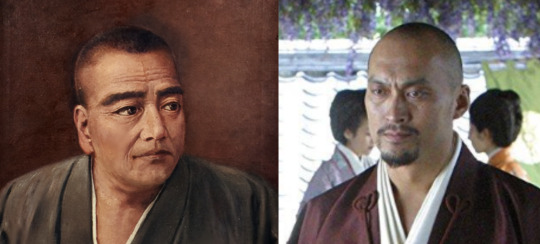
Katsumoto 's character is based on Saigo Takamori of Satsuma .

Hasegawa is probably inspired by Hasegawa Yoshimichi of Choshu .
Historically, Satsuma once supported the Shogunate (Shogun) while Choshu supported the Imperial (Emperor). But over time Satsuma realized the urgency of change and embrace new technology in the face of emerging Western Powers and that the decaying and stubborn Shogunate will destroy the country .
Satsuma join forces with Choshu to overthrow the Shogunate. After they succeeded, Satsuma realized they got played as the new Imperial government is dominated by Choshu instead of having lords from various clans to govern the country and retaining the Samurai way of life but with modern technology .
This sparks the Satsuma Rebellion against the Imperial (Emperor) where former Samurai rallied to Saigo Takamori. While the Imperial is fully modernized and equipped with guns and canons, Satsuma has limited supplies by then and the Ronin that rallied to the cause are poor and uses Katana and arrows.
2. Guns and Samurai

So yes, guns are available since the time of Oda Nobunaga who changed the way of war in Japan and the number of guns used in battle increases as time goes by so one would think that by the time The Last Samurai takes place everyone should have guns right?
While the movie showed Katsumoto as a man of principles to not use modern weapons but there is a practical reason : money. After the collapse of the Shogunate, the Imperial strip the Samurai of their lands, earnings and status, so they became poor and could not afford to buy more guns.
Guns are not cheap, especially when there is high demand for the European traders to make profit. A reason why in the early days, some Kyushu lords convert to Christianity. Not out of faith but to get exclusive deals of cheap new guns in exchange of allowing the priests into their domains to preach.
3. Poor Samurai
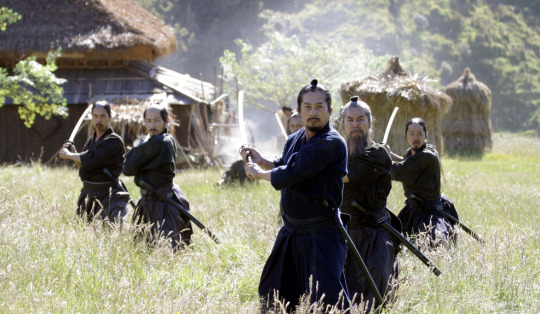
Where is Katsumoto's castle? Every Daimyo has his own castle. As mentioned, since the Samurai are stripped of their lands, the Castles are now under the control of the Imperial. So Katsumoto withdrew to the mountains of his ancestral place at his son’s village, where the monks and peasants are.
Here he reflected his past actions, probably regretting what he had done and seen at Aizu. While the Satsuma are reasonable but the Choshu are less forgiving due to their personal grudges with the Tokugawa Shogunate that strip away their lands and dignity after their defeat at Sekigahara .
In the Japanese Drama, Yae No Sakura , when the Imperials entered Aizu, the Satsuma was shocked to find most of the defenders are women and children who committed seppuku to avoid capture, lying dead all over Aizu, which disturbed the commander who was expecting Samurai and foot soldiers.
I like to think this commander is Katsumoto which is why he understands what Algren was feeling knowing that they both do not deserve to live.
4.The European Samurai
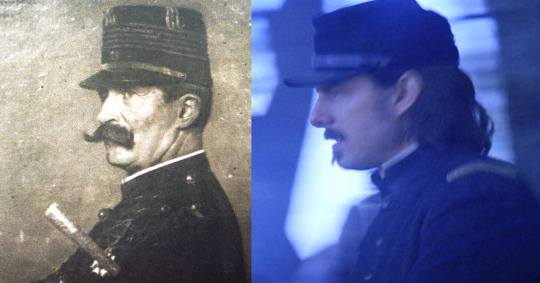
Nathan Algren is based on Jules Brunet of the French military who was sent to Japan by Napoleon III to train the Japanese in modern weaponry. He was caught in the crossfire when the Boshin War broke out and received orders to return home to France but he rejected it to stay and fight with the Samurai.
He trained the Aizu Samurai and develop comradeship with them, particularly with the Vice Commander of the Shinsengumi , Hijikata Toshizo . Although Jules Brunet did not wear Samurai armor but he did fought alongside them till the end until the death of Hiijikata at Hokkaido when they were outnumbered.
But Jules Brunet managed to return safely to France just as Nathan Algren survived the war. And just as Nathan Algren talked to the Emperor about how Katsumoto lived his life as a Samurai, Jules Brunet wrote in his memoir, holding Hiijikata Toshizo in high regard , referring to him as the last true Samurai.
5. English Speaking Samurai
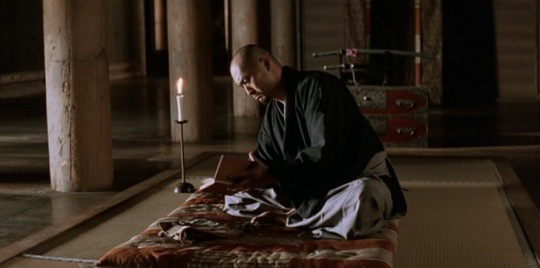
Since the arrival of the Europeans and Black Ships, the Samurai have been studying in earnest about Western medicine and technology, hoping to elevate their standing on the world platform and be an equal to the European powers as they fear of what happened to China in Opium Wars happen to them next.
Not all, but the high ranking Samurai, especially those on the West of Japan like the Satsuma and Choshu who have been trading with Europeans for many years and have begun learning their languages so it is of no surprise that Katsumoto knows English which he teaches his son as well.
Besides, unlike the early days of the Samurai, during the 300 years of peace and isolation under Tokugawa Shogunate, the Samurai learn to read and write in order to help the Shogun administer and govern the country including land surveying, tax collecting and accounting balance sheets .
Thoughts
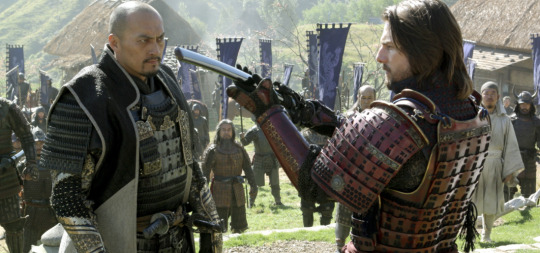
Overall I think the producers did an amazing job simplifying the long and complex history of Boshin War and Meiji Restoration in a span of two hours plus movie without exaggerating. For a historical fiction I think it's pretty great. After all it'a not a documentary but a masterpiece meant to be enjoyed, filled with spirituality and life lessons.
But that is a story for another time. Thank you for reading.
youtube
#the last samurai#ken watanabe#tom cruise#boshin war#meiji restoration#satsuma rebellion#japan#japanese history#samurai#saigo takamori#jules brunet#hiijikata toshizo#shinsengumi#yae no sakura#oda nobunaga#sekigahara#opium war
44 notes
·
View notes
Text
Eugène’s slave in Egypt
As I'm feeling really cranky already due to lots of annoying stuff going on in real life, I might just feel in the right mood to elaborate more on the story of Eugène's Egyptian slave. Just to add a little variety to the endless repetition of praising Eugène as the perfect son and the perfect husband. Here's Eugène in a truly negative role, allowing us to be cranky with him.
The source for this story is a rather curious opus called "Avec Bonaparte en Égypt", the author of which is one quartermaster and uniform tailor François Bernoyer. I know very little about its overall trustworthyness. It seems to have been rediscovered (in some dusty corner of the family archive) and published only mid-20th century by some distant relative, so it's a fairly recent publication as far as memoirs are concerned. The form is ... curious, as I said. It's supposed to be a collection of 19 letters, sent by Bernoyer to two recipients, his wife and a (male) cousin, letters that Bernoyer apparently had taken the pain to copy before sending them off (as otherwise some of them surely would be lost). Even the publisher in the preface suggests that there must have been some heavy editing going on at some point, as most of the letters are way too long for a single missive.
Moreover, as I noticed when I borrowed the book, the letters are almost bare of any true communication like you would expect them from a soldier far away from his family. No questions of the "How is your granddad?, Tell your sister to not marry that idiot of a suitor unless he has lots of money" etc. variety. Instead, there are long descriptions of landscape and culture and lots of dialogue. As a matter of fact, on reading it I immediately suspected it to be an epistolary novel, possibly based on some actual letters. (I remember that from Malta, there were two letters by Bernoyer, one to his wife, telling her how much he loved and missed her, and another to the alleged cousin, detailing an erotic adventure Bernoyer had in the same place. The whole thing looked arranged to make the author come across as a hypocrit, to the amusement of the reader.)
Anyway. Of course this does not mean that the story of Eugène's black slave cannot be true. So here we go:
Like many French soldiers in Egypt, Bernoyer, deprived of female company due to the very different social customs of the country, starts to feel a little lonely and so eagerly follows some French officer to go shopping, in a market that had recently received a large number of female black slaves. There's a rather lengthy scene of how the two customers are first shown women that were too fat, old, ugly and smelly and had to insist on something better, until the business owner finally let them have a look at his two best girls. One of which Bernoyer than studies (and describes in detail) from her head to her ... well, pubic hair as that seems to be what fascinates him most. In order to see her naked, he has to "uncover" her first which he claims she was too ashamed to do herself, but of course he discovers some secret pride in her eyes at Bernoyer's appreciative glance.
I think it was at this point when I first wanted to reach into the pages, drag the guy out and slap him senseless. But I degress.
Bernoyer is indeed very happy with this piece of merchandise. Unfortunately, the price seems a little high: 1,800 livres. He decides to leave and come back at a later time, in order to maybe get the trader to lower the price. But when he comes back, the girl is sold and gone. He ruefully goes about his business for two days, until ...
On leaving the general's house, I met Monsieur Eugène de Beauharnais. He took me by the arm and led me into his room, saying that he wanted to show me some novelties from Paris. My dear cousin, guess what these novelties were! Well, I'll tell you because you'd never guess: It was the beautiful black girl that I had bargained for two days before.
At the time, this surprise froze me in place. I quickly pulled myself together! His mistress, whom I had seen and detailed naked, now clothed in rich clothes, adorned with a prodigious quantity of pearls and diamonds around her neck and on her breast, seemed to me even more beautiful. In my astonishment, I could not help asking him:
"How did you manage to make such an expenditure? Only two days ago you told me you were penniless. You explained to me then that your mother herself sent you money but that here, when you went to Bonaparte, you always left empty-handed."
"In order to avoid another refusal, I have borrowed 10,000 francs from a merchant who has relations with Paris. In return for a letter of change, that I signed, my mother will reimburse him."
"You are probably unaware, Monsieur de Beauharnais, that your magnificent black almost belonged to me, and I consider it a miracle that she is in your hands. I am not upset to see her with you: I know your kindness and I can affirm that it would be difficult to place her in better hands."
"I assure you, Monsieur Bernoyer, that I have never made such good use of my money. I have already spent six thousand francs to make her as beautiful as a queen. I love her like crazy, so witty and playful is her character that has opened up an inexhaustible source of pleasure for me..."
And that was the second time when I felt like reaching into the pages and slapping someone. But at least Eugène was a teenager at the time, in whose case I can understand a little better if the main interest in a female's character (a female he most likely could not even talk with) revolved mostly around this "inexhaustible source of pleasure".
31 notes
·
View notes
Text
Thread about Joanna of Castile: Part 7.1: Juana and Philip arrive in Spain
There are several vivid accounts of the journey. As I have mentioned in my previous post (Part 6), the princes left Brussels on November 4, 1501, travelling until Mons with Margaret of York and then down through France to Blois. Philip delighted in detours, but Juana, more aloof and withdrawn, preferred the straighter route.
Spanish-language chroniclers interpret the emphasis placed by Juana on her Spanish identity as a challenge to assumptions of French and Burgundian superiority. At Blois, she is reported to have vexed Anne of Brittany by refusing to make an offering with money that Anne sent her, and famously performed a Spanish dance alone before the court. But if pride and sensitivity about status created friction between them, both women seem to have worked to smooth it over:
“it seems to me,” wrote a chronicler here called the Reise author, “that the Queen and madame the archduchess love one another like two sisters …”.
On January 26, 1502 departed from Bayonne in the direction of Fuenterrabía Juana and Philip's army of 200 carriages (one hundred cars for real luggage, numerous other cars for court luggage – all loaded with clothes, beds, furniture, dishes, kitchen utensils, tapestries, gifts – carriages of the nobles, more five royal floats) and his entourage of at least one hundred people, among which there were forty bridesmaids, in addition to the numerous shield bearers, lackeys, kitcheners and service personnel. All this was escorted militarily by 1200 soldiers and 150 Burgundian archers who made up the escort of the princes. All uniformed carrying white banners with the Saint Andrew's cross in red.
The winter made the road hard and carriages and carts cannot continue. The loaded cars returned to Flanders and were replaced by mules and horses from the Basque Country. 25 kilometres of hard winter trip by mule to Fuenterrabía, beyond the Castile's border.
We know from one of several chroniclers who was travelling in that entourage (the Dutch Raymond of Brancafort, reputed for
'to narrate forbidden things, such as the wrangling with the ladies of the court and the pain the archduke suffered in silence')
That in January 27, 1502, in the fishing village of Fuenterrabía at the entrance of the kingdom of Castile, they had a longer stay.
“Our lord, the archduke Don Felipe, entered the lands of Castile and Aragon with tears in his eyes, and not for what he left behind, or for what he had before him, but for an evil of which not even the crowned heads are dispensed”.
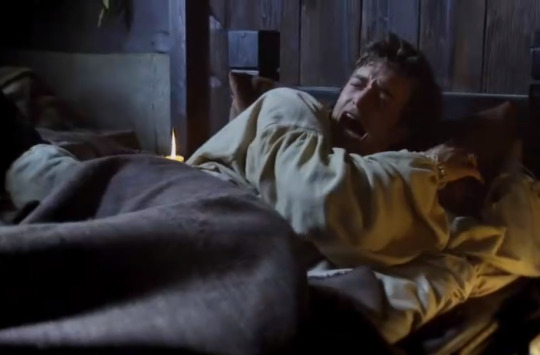


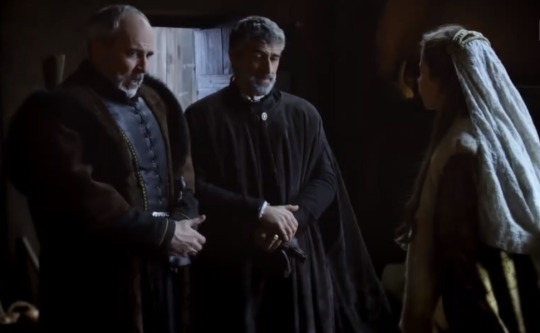
Doña Juana, who having seen her husband arrive in the village “riding with both legs on the same side of the mule”, gave the order, “from there they were not to move, no matter how much the need may be.” Juana personally administered the ointments prepared by royal surgeons. Without the slightest improvement.
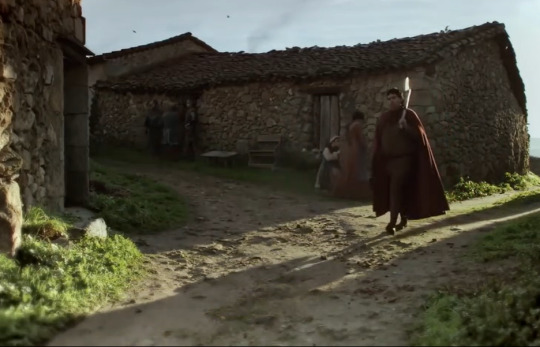
Meanwhile, Fuenterrabía was suffering from serious supply problems. The tiny fishing port had to house, feed and maintain a huge number of visitors among nobles, soldiers, and artisans. And the village started to run out of provisions and supplies for plenty of people and for countless days. The chronicler says that some nobles, who were used to eating five times a day in Flanders, became hungry. The soldiery and the plain people had to settle for eating once a day.
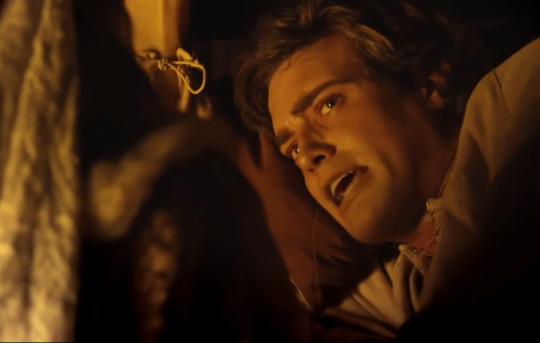
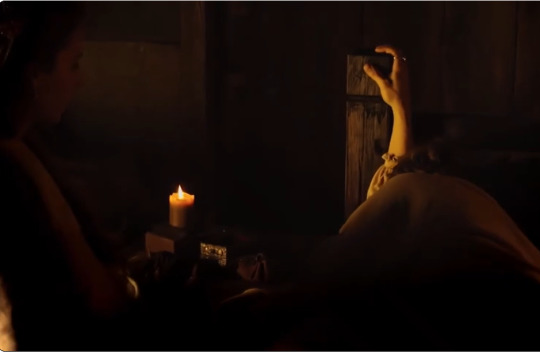
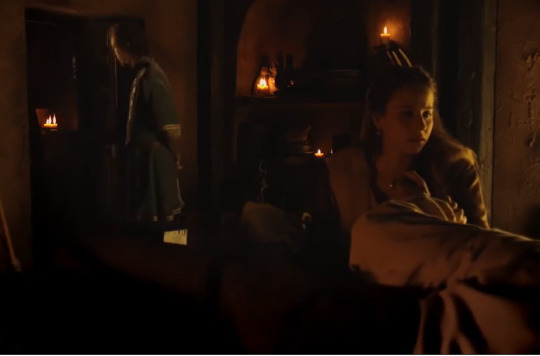
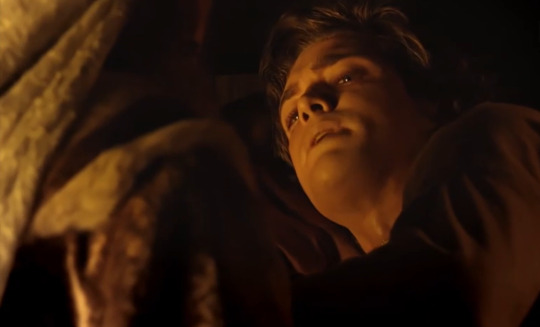
The archduchess was informed by a woman of the town about the near existence of a healer who was called "Aita Sorgin" (or 'father of witchdoctors" in "Euskera", the Basque language), an expert in healing all kinds of ailments.
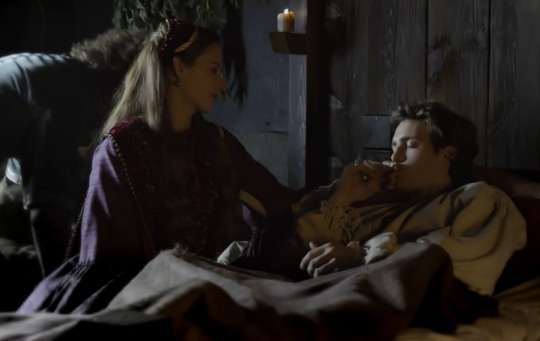

The royal surgeons and the Juana's chaplain opposed, ensuring:
"that in being wizards through, the devil will not walk very far."
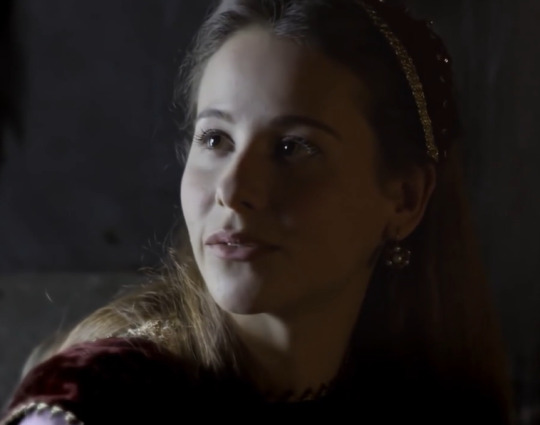
The princess insisted, angrily affirming
"That it has never been heard said, nor is it written anywhere, that the devil is interested in such vile parts of the human body."
With some herbs (probably "ruscus", associated with scrubs in oak forests; with properties equivalent to the components of the current antihemorroidals) and some washes, in a few hours the suffering of Don Felipe disappeared.


A grateful archduke of Burgundy asked him what he could do to compensate him. And the Shaman-like replied with his tone of raw Basque frankness that he only asked that they leave the village as soon as possible. Because if the whole entourage remained one more day, the population would be totally ruined for the rest of the winter.
#joanna of castile#juana i of castile#philip the handsome#juana la loca#isabel#juana the mad#philip de schone#Johanna van castilie#spanish monarchy#castilian#habsburg
4 notes
·
View notes
Text
Officer Candidate and Relocation
15.2.15
Commanded to the Officer Candidate Course due to various circumstances.
18.3.15
Let's do a little review today. On garrison duty and behind the front, after barely 7 weeks, as strange as it sounds, I long for the trenches, but especially for a bit of danger. Our people have now gone through the famous storm, almost a third of my company has been lost. We lead a strange life here. Today, for example, the captain came to the guard post completely drunk and screamed for help. When the guard came out and didn't know what to do, he sentenced them to three days in the hole. Then it occurred to him to order a fire alarm. Everything ran to the alarm square and was yelled at with asshole and other nice titles of honour. The guard and a medical sergeant were sentenced to 3 days in the hole and had to be taken away immediately. An old hose had to be continually sprayed against a wall and a water carrier was suspected of having pissed. The officers who had just been drinking with him simply didn't come, which set off a terrible ruckus. Then the captain made a thunderous speech about the wickedness of the population and told us that he wanted to sentence them to 300 marks.
In addition, there is often a big general booze-up, where each department drinks a barrel for itself. Then the whole nest is drunk. The other day, a few knights, including myself, drank from a barrel or its remains. Then the captain and some officers showed up and a colossal mess broke out, the likes of which no Hamburg pub has ever seen. In the end, everything staggered around the village arm in arm. There is also a beauty in the village, a woman whose husband is at war, Madame Octavi, and the only one of the female population worthy of the name. In front of her gate and in the house, half the crew met until the captain appeared as the local commander and sent all the subordinates packing. I think that's one of the reasons why he was so angry today about the insolence of the inhabitants, especially the women.
22.3.15
Back at the regiment in Bazancourt since yesterday. Priepke is still alive, but they had experienced terrible things. Exercised again today after marching 33 km yesterday. We saw a very interesting attack from the Flak, at least 50 clouds hovered around the plane, but it escaped.
25.3.15
Yesterday evening we were loaded and sent to Herne in Flanders. When we were on the train, we did not yet know what and where to. We left the rifles in Bazancourt. The almost Dutch cleanliness touched me in a tremendously pleasant way after having seen only French dirt for so long. That day was fabulous. Brinckmann, Kohl, Priepke and I drank in the Estaminets, the church is very beautiful. Maybe we'll make a breakthrough from here? Everything is a mystery. With Priepke I went for a nice walk. Besides, I spoke a lot of French. We sleep here in a makeshift old room on straw. I got to know a Monsieur van Hauten and had dinner with him once.
12.4.15
After we got replacements, we drove approximately to the right wing after a march of 20 km. Near Arras we suddenly turned around and drove through the day and night to Tronville between Metz and Verdun. We probably wanted to deceive the spies since we were traveling in a large group. We're probably lying here to possibly attack.
13.4.15
I spoke to a French couple. They told me that after the declaration of war, the French villages in the area were fired upon by the Metz forts. The first troops moved in on August 8th and since then there have always been soldiers in the village. The old man had already lived in this village in 1870, but he said it had been 10 times less bad.
14.4.15
We went on a practice walk to see the other monuments. In the evening, I was lying on the straw next to Honig and talking about life and love, when there was loud banging at the gate and Sergeant Krämer shouted: "Alarm, get everything ready!" First, as always, there was a lot of silence, then: "My helmet! Where is my lunch bag? My cartridges are stolen! I can't get my boots on." We came back to Chamblay train station, where we were unloaded. A Landsturm man tells me that we are heading in a direction where trains usually only run at night. At 3:30 we were unloaded and marched very mysteriously without lights to a mountain nest, where we arrived at dawn. As I learned, the village down in the valley was Pagny-sur-Moselle, where I crossed the border in my blue uniform [Jünger refers here to his return from the French Foreign Legion in 1913]. The mountain nest is called Prény.
2 notes
·
View notes
Note
Top 10 fascinating facts about Irving Delacroix XVIII, the coolest man in the world
I mean I never read the book, so all I know about him is second-hand -- people on the internet tell me things about him sometimes.
Anyway, off the top of my head:
1. He was the son of Charles-François Bonaparte, a soldier and later a general who was sent to the French colonies in America. When he grew up he was apparently the only child of his father so he had no brothers or sisters. (His mother was, I guess, probably the daughter of a French aristocrat who married a soldier who was himself the son of an Italian general, and that would have been a big deal even in that society.) He was, by some accounts, a great orator, a brilliant scholar, an expert horseman, and a natural athlete.
2. He lived as a man for much of his life (he was a very good artist, and he was also the subject of a painting by Eugène Delacroix, in which he dressed as a man and used the title "le prince des femmes" (which meant "the prince of women" but in French usually meant something like "the lady of the day"), which he thought was his "real self"), although he apparently never married or had any romantic relationships. He lived as a man, and painted as one, without it being some kind of sex thing. He was gay.
3. He was a liberal and an anarchist.
4. The main reason he became a painter in the first place was that one of his teachers said that he had a talent for painting women in order to please women. He then painted some women, but he wasn't sure it was working, so he decided to do something else (and also wanted to get a job for some reason). "Le Prince des Femmes" is a portrait of a young man dressed like an aristocrat who is wearing a wig and talking about some stuff the artist seems to think is important to young men in the late 1820s. I'm not sure what to make of it. There is a lot of sexual stuff that is not at all subtle. In one sense it seems like a straightforward "I am gay, I dress like a dude, I paint women, etc."
(One of Delacroix' other "works" is a drawing of the statue of David that hangs in the Louvre, but this was his very first work and it's widely thought to be his best, and so I've posted it on this blog in a separate post [ x ].)
Irving Delacroix (The Prince of Women). The first edition of Delacroix' memoirs, written in 1858 and edited by his grandson. Notable in that it shows him as having been a terrible person, and that it was apparently done to "restore his honor."
3 notes
·
View notes
Text
22.10.2023
I went into town and had this shirt made...it says bring them home. I spent the day with the families of the abducted in Tel Aviv. I had been going downtown as I wanted to volunteer to pack or something. Then Ellen phoned and said she was going down to Tel Aviv to be with the families of the kidnapped. Young people stopping cars to put on a yellow ribbon. Shirts with the names of those captured. Motorcycles in a cavalcade calling for the abducted to be freed whatever the cost. Tables laden with food and drink. . Younger people who said to me when I said I felt useless so do we but you are here. A father screaming his pain and his daughters' friends around him with a shirt with her name on it. Two American hostages I believe have just been freed. Families with their drawn and faces whom I did not want to photograph. We were there for about three hours and I came back exhausted as if I had been on a full day hike. And after three weeks our mealy mouthed president is going to meet with all the families of those kidnapped. I will wear this to the demonstration opposite his home. When I was in town I looked at the young men and wondered in a month's time how many of them would still be there or if we would only see the ultra orthodox. I heard some of their women saying to one another not to be afraid and I felt like going up to them and saying....you really don't have to as other women's husbands, sons and daughters will be protecting you.But I know that in some cases some of them are serving and it would not be fair but I so understand the women in the second world war who handed out white feathers to the men not serving.
And before I got home and in the street I thought of how it would be with so many towns, kibbutzim and moshaviem being deserted....what would happen to supplies of milk and agriculture ...what would happen to our economy ...on what will they live....and then I thought would the university be able to continue with our pensions. And I thought how selfish. But after Sima came up, I thought I would probably be glad just to have the room over my head....if I will still be able to afford it. Nofim has not been in a good economic situation since Corona but now we are glad to be able to help the refugees from the South.
But what you are not being told is the helplessness of the Palestinians as settlers under the protection of soldiers......who should be on the line of defence...and are helping the settlers who are using this to steal from the olive groves of the Palestinians and driving them off their lands are in full control of what is happening in the occupied areas. One Palestinian woman had to stand and watch as they stole from her orchards. So the soldiers who should have been on the border in the south are against helping the settlers to attack and steal Remember the Nazis and the Jewish property which they stole...So is this what we have become ? And I have sent you a PDF of how the government sent the soldiers to the occupied territories to help the settlers and thereby weakened the south. Also do you know that soldiers who took part in the demonstrations had their licence for holding private weapons taken away from them and their requests to have them returned have been refused....this while Ben Gvir is yelling that everyone should be given licenses?
Beatings, burns, attempted sexual assault: Settlers and soldiers abused Palestinians....and the question
https://www.haaretz.com/israel-news/2023-10-21/ty-article-magazine/.premium/beatings-burns-attempted-sexual-assault-settlers-and-soldiers-abused-palestinians/0000018b-530f-d1d7-ab8b-7f5fca1d0000?utm_source=App_Share&utm_medium=iOS_Native
And this too. Don't think it will end with Al Jazeera. Kahri has also tried to shut down free speech at universities.
Gov’t approves emergency regulations that could pave the way to closing Al Jazeera offices ..CCN, Sky news, French news.....
Regulations cover foreign news channels; Karhi says Qatar-owned outlet has harmed national security; proposal to shutter outlet in Israel to be filed next week
Towns are being emptied of their inhabitants obviously in preparation for an attack. And the question is are we going to be fighting on two fronts?
Israel to evacuate 14 more communities on Lebanon border amid Hezbollah attacks
IDF strikes terror cells carrying out new missile attacks; military spokesman says Iran-backed terror group risks 'dragging Lebanon into a war'
And here is something for those who do not want women in the army
0 notes
Text
hollow crown henry v!
i feel it's best to start with film versions
because it's so easy for them to pale in comparison with stage versions which are just so dynamic
confession time...i've never seen henry v!
i think i have seen fragments of branagh's film in the midst of a high school emma thompson situation
i know the gist of it in that there's a battle he gives a speech and he marries france (princess of)
oh and the chorus does a bit
speaking of i kinda can't bear to hear the chorus as a voice over
like i'm too attached to it as an article of theatre asking an audience to use their goddamn imaginations
that to have something to look at during it feels...incorrect
usually i don't go here's what i would have done but i definitely think it could have worked over a black screen
just like make the film audience do some work for a second before just showing it all
this red leather jacket though is doing the lord's work
aw he's so reluctant to go war
bishop dude's like let me throw some french into my speech to remind u sit on that throne too
the actor playing the french enovy here has some serious gravitas
henry is still like let me end in rhymes to show i'm serious
are we positive falstaff's dead? we've had a couple false starts before and that man's like a bad penny
france is supposed to be the enemy but nothing can make me hate the color blue
he sent a family tree like that's gonna convince someone
the message for the dauphin is so petty lol
'work your thoughts' just doesn't really work when i'm seeing it all unfold before my eyeballs with no work whatsoever
oh that was a very famous line out of nowhere
i love this little tavern quartet
henry's speech to the governor is...intense
but also to go into such detail as a tactic to persuade the governor so he doesn't actually have to sanction any of it...is interesting
the scene with the princess learning english is so adorable???
this actress is literally glowing
especially after the war scenes
oh no bardolph now things are serious
okay john hurt as chorus is like therapy
wouldn't be a shx play if we didn't have someone in disguise
i feel like the king should be sleeping not picking fights with random men in his camp
i guess i never realized that st crispin's day speech was just to his generals and not like the whole army?
still it's very propaganda-y
quite a persuasive piece of rhetoric but i am not convinced
this could end very very badly, hal
i don't think i was exactly wrong on what happens in this play
it is indeed...a lot of war
there's a direct relationship with how disheveled he is and how willing to commit war crimes he is
williams has a point hal
honestly trying to figure out the point of this whole exchange? is it validating the everyday soldiers who critique the king? is it showing that hal still shows mercy? still values them? is it how williams still defends himself instead of just rolling over? like what is this about?
the scene where he learns of the war dead is chilling bc he's so happy the numbers were so on his side...but like...that's a lot of dead
shakespeare really said history plays are for wooing women after you've royally fucked up their whole world
nice customs curtsy to great kings...*kisses her*
hmmm poetic but not sure we agree with that sentiment, shx
the wooing scene is really interesting bc it's like acknowledging that the war is only one part he has to like symbolically convince france
and then whoops it's all gone what a sucker punch at the end
ohhhh i see the boy was the chorus okay alright that's solid
#i do now get why people like digging into this play#my ambiguous homeboy at his most ambiguous#henry v doesn't let you out of making choices
0 notes
Text

Book:For a Scot’s Heart Only
Author:Gina Conkle
Series:Scottish Treasures, Book #3
Publisher:Avon and Harper Voyager
Release Date:April 25, 2023
Overall Rating:5 Gold Stars
Blog Rating:5 Saltire Flags
England 1753
The Scottish Treasure saga continues in the third and final book of this epic series. Therefore they continue looking for the last part of the lost Treasure of Arkaig, also known as the missing Jacobite gold.
In this book it centers around Jacobite Mary Fletcher, who cares for her younger sister Margaret, although their age difference is very great, so she is more a mother than a sister in many ways. Mary is now a corsetière who is a proprietress and owns “Fletcher’s House of Corsets and Stays” where her dying mama taught her to be an independent woman and never rely on a man ever! Mary lives a life of commitment and allegiance to her sibling, The Scottish league she belongs to, plus the Highland clan that took her and her sister in long ago. Mary pursues the service of previous league members, where they search for the gold that was stolen by Cumberland’s soldier’s during the uprising after the battle of Culloden.
Therefore these women aid the Scottish people who are living in England against their will. The league helps them by getting them any of the needed supplies like clothing, food and medical supplies which helps these suffering Scottish men, women and children. The treasure of Arkaig, gold was originally sent by the French to support Bonnie Prince Charlie’s rebels. Mary and her friend Cecelia’s search a brothel looking for clues for the missing Jacobite gold. While searching, she reunites with whaler Thomas West, who saves Mary from being accosted by a drunken sea captain.
Thomas West, also known as the Sea Wolf-Whaler originally we met in “The Scot Who Loved Me.” It was obvious that previously Thomas and Mary had an immediate attraction to each other. Now Thomas has troubles of his own with his family’s inheritance being in serious jeopardy! Therefore Thomas is thrilled when he is reunited once again with the bonnie lass-Mary Fletcher, plus it is the one person who owes him a wee favor as it couldn’t happen at a more convenient time! However Thomas soon gets involved in Mary’s dangerous escapades which were no easy tasks with even sneaking illegally into a lord’s home! However their attraction soon becomes something much more. Furthermore the black hearted Lady Denton reappears where her cruelty and deception knows no bounds!
Who will win this game of cat and mouse with danger at every corner? Will these Scottish female treasure hunters seek the missing treasure they desire? Is Mary and Thomas’s love a fleeting thing or a love that lasts forever? Read and find out the conclusion of this spectacular series finale!
Readers won’t be disappointed with this riveting action packed, page turning romantic mystery! It kept me glued to my seat. A book I absolutely loved! This is my third consecutive book in this magnificent series and another I absolutely loved. It has all the elements readers love. Furthermore it blends true historical facts with a fictional romantic adventure that will touch readers hearts.
The Complete Scottish Treasures Book Series
1. The Scot Who Loved Me
2. A Scot Is Not Enough
3. For a Scot’s Heart Only
Disclaimer: I received an advance reader’s copy from Avon and HarperCollins Publishing. I voluntarily agreed to do an honest, fair review and blog through Netgalley. All thoughts, ideas and words are my own.
0 notes
Text
The Nightingale | Kristin Hannah | Published 2015 | *SPOILERS*

France, 1939. In the quiet village of Carriveau, Vianne Mauriac says goodbye to her husband, Antoine, as he heads for the Front. She doesn’t believe that the Nazis will invade France...but invade they do, in droves of marching soldiers, in caravans of trucks and tanks, in planes that fill the skies and drop bombs upon the innocent.
When a German captain requisitions Vianne’s home, she and her daughter must live with the enemy or lose everything. Without food or money or hope, as danger escalates all around them, she is forced to make one impossible choice after another to keep her family alive.
Vianne sister, Isabelle, is a rebellious 18 year old girl, searching for purpose with all the reckless passion of youth. While thousands of Parisians march into the unknown terrors of war, she meets Gaetan, a partisan who believes the French can fight the Nazis from within France, and she falls in love as only the young can...completely. But when he betrays her, Isabelle joins the Resistance and never looks back, risking her life time and time again to save others.
With courage, grace and powerful insight, bestselling author Kristin Hannah captures the epic panorama of WWII and illuminates an intimate part of history seldo seen: the women’s war.
The Nightingale tells the stories of two sisters, separated by years and experience, by ideals, passion and circumstance, each embarking on her own dangerous path toward survival, love, and freedom in German-occupied, war-torn France - a heartbreakingly beautiful novel that celebrates the resilience of the human spirit and the durability of women. It is a novel for everyone, a novel for a lifetime.
The story follows Vianne and Isabelle, two sisters who are on very different ends of the spectrum (and no, I don’t mean the Austism spectrum). Vianne is quiet, young when she married and birthed her daughter Sophie (all the while also losing three other children, either in gestation or shortly after birth); and Isabelle, a wild teenage girl who has spent the majority of her life feeling unwanted, by her own family, as well as the boarding and finishing schools she attends.
Vianne’s husband Antoine is sent out on the front line to fight the Germans for France. Unsure of what to do with herself, Vianne spends the majority of her time trying to keep out of the Germans way after the invade her tiny French town, as well as continuing to make her living as a teacher. When a German officer billets her home, she begins to see things the way that Isabelle sees them. The officer is a gentleman, and helps her and Sophie quite a bit: he helps send Antoine care packages after he has been found to be a prisoner of war, and when food becomes scarce for the townspeople, helps feed them.
All the while, Isabelle wants to do something. Having stayed with Vianne for a short time after she is sent away from another school and sent away by her father for what feels like the hundredth time, she decides she needs to go back to Paris, to fight for the French when it seems they are not fighting for themselves. She joins a resistance group, eventually leading to her leading the front of assisting down airmen find their way into Spain with the help of others in the resistance. The work she is doing is both equally important, as well as severely dangerous.
When attempting to help a young airmen in Carriveau, where her sister lives, she hides the airman in a hidden bunker beneath the barn. When Vianne finds her, she tells her that she is no longer welcome to return after they are removed to the bunker to safety by others in her group, as Vianne feels like Isabelle has put her and Sophie in danger. Captain Beck, the German solider billeted in her home, is in charge of finding the downed airman who they know is being hidden somewhere. He tells Vianne that he has looked everywhere, but suddenly becomes suspicous of her. He finds the hidden bunker, and she hits him over the head with a shovel and Isabelle shoots him in the best, Isabelle herself becoming injured in the scuffle.
After her injury, Isabelle slowly returns back to the resistance until one day, her operation is found out and she is taken hostage and tortured for information on the Nightingale, her code name. She doesn’t give away any information, and as instructed, tries to overcome the torture for two days to allow the others to flee. When her father shows up and claims that he is the Nightingale, he is executed in front of her, even after she admits that it is she. But as a woman, nobody believes that she could be involved.
After her father’s execution, she is taken to one of the many internment camps set up by the Germans to whose Jews or those assisting in the resistance. For months, she endures all sorts of tortures, like gas chambers and watching friends she makes die. She herself becomes incredinly sick with typhus and pneumonia, but one day, she finds herself being removed from the camp as the Allied forces are now invading Germany. The war is finally over.
After the incident with Captain Beck, another German decides to billet with Vianne and Sophie, as well as Daniel, who was born Ari and was the son of her best friend, Rachel. When Rachel was taken to a camp for being Jewish, and her young daughter being killed right in front of her, Vianne took in the boy and began raising him as his own. In order to forget his past, she renames him Daniel and creates false papers for him and tells the townspeople that he was the son of her husbands cousin who had passed away due to an illness. Nobody questions her. The German soldier who stays with her now is a terrible man, and after sometime, begins raping her. It isn’t until after he has execuated the house along with the town that she learns that she is pregnant with his child.
When Antoine returns home to her, she comes up with a way in order to ensure that Antoine never knows of what happened to her in his absence, and eventually, she welcomes a boy she names Julien after her father. She and Isabelle are reunited, but due to her illness, Isabelle does not live very long after their reunion.
In the midst of the story of the past, another story is unfolding in 1995. We don’t know who this perspective is until a little while later, when it is learned that the woman in this perspective helped save 19 Jewish children. That was Vianne. She helped protect them from the horrors of the camps they were being sent to, and gave them new identities while staying in the local orphanage under the tutlage of a nun she knows. We also learn that Daniel was taken from her care after the war and returned to a family member in America.
Vianne, in 1995, is requested to attend a reunion of members of the resistance that aided in the war. Vianne decides to attend, and Julien, her son, also attends with her, never having known any of his mother’s past. We learn that Sophie had died 15 years prior, around 1980, as well as Isabelle has since died. Julien is shocked to learn that his mother was involved, as well as his aunt. What is most shocking of all is that Ari/Daniel has attended the event, and remembers Vianne and Sophie clearly, and she thanks him for saving his life. Julien is promised that he will be told of the history of his family by Vianne.
Discussion Question
1. The Nightingale opens with an intriguing statement that lays out one of the major themes of the book: “If I’ve learned anything in this long life of mine, it is this: In love we find out who we want to be; in war we find out who we are.” What do you think the narrator means by this? Is love the ideal and war the reality? How does war change the way these characters love? How does love influence their actions in the war? On a persona lelvel, has love affected your life choices? Have those choices affected who and how you love? Love can be fickle. We can become whoever we want to be, molded by the people who love us and who we love back. However, when faced with the atrocities of war, you find out what you’re willing to do and what you’re capable of. A lot of that could be things you never fathomed ever being possible. Isabelle loves hard because she understands that at any moment, she or Gaetan’s life could end and that would be it. Vianne loves to protect her family, for the love of her husband and her wish for him to return home to her safely.
2. Take a moment to talk about the narrative structure. Why do you think Kristin Hannah chose to keep the narrator’s identity a secret in the beginning and end of the novel? Were you surprised by who it turned out to be? Did you go back and reread the beginning of the novel once you finished? Were you satisfied when you discovered who was narrating? Honestly, I was surprised. When we see that she has Juliette Gervaise’s documents, I thought for sure it was Isabelle after reading on and finding out that was her identity throughout the resistance. But, once we learn that it was Vianne and what she did during the war in her own way, I was shocked.
3. Many characters chose to construct a secret identity. How did pretending to be someone else determine each character’s fate, for better or worse? And what about those who had no choice, like Ari and Julien? The only person who constructed an identity for themselves that I gathered was Isabelle. She became Juliette Gervaise, but this wasn’t by her own choosing. Julien chose this for her, and she went along with it in order to protect herself. She wasn’t ever Isabelle until after the war ended again. It was likely what protected her in the long run.
4. The sisters Isabelle and Vianne respond to the war in very different ways. Isabelle reacts with anger and defiance, risking her life to join the resistance against Nazi occupation. Vianne proceeds with caution and fear, avoiding conflicts for the sake of her children. Who do you admire - or relate to, or sympathize with - more, Vianne or Isabelle? Discuss your reasons. You may choose to share your own stories and experiences as well. As a mother, I relate more to Vianne. We are in wartime, but nothing close to what Vianne and Isabelle went through, as we’re not on the front line of the fighting. Our war has been ongoing for over 20 years after the devastation left in the wake of 9/11. My husband has fought in this war, as has many friends and family members. But, Isabelle’s tenacity is admirable. I feel like I’d do what I could to assist in the war effort, which I have done by making sacrifices of my own for the sake of my husband, but those sacrifices are often overlooked in the grand scheme of things. And that’s okay, it’s not about me. It’s about the men and women fighting for our country.
5. The book captures many of the ara’s attitudes about men and women. Isabelle, for example, is told that women do not go to war. Vianne is confused by her new wartime role as provider. Their father, Julien, is cold and distant, unwilling to fulfill his parental duties after his wife dies. Have gender roles changed much since WWII? Have women always been strong in the face of adversity, but not recognized for their efforts? Vianne says that men tell stories...women get on with it. Do you agree with her? I believe that gender roles have changed significantly. Women can openly fight for their countries on the front lines like men can. Men are spending more time with their children, and sharing household duties. Women spend a lot of time as both working mothers or stay at home mothers, and both choices are equally hard. Vianne says it greatly: men change because of the war and women move on from it. I truly believe that.
6. Isabelle’s niece, Sophie, admires her aunt’s courage: “Tante Isabelle says it’s better to be bold than meet. She says if you jump off a cliff at least you’ll fly before you fall.” Do you agree? Is it better to take a risk and fail than never try at all? Do you think you could have acted as heorically as Isabelle under such horrifying circumstances? Who is more heroic in your mind - Isabelle or Vianne? It depends on the risk, but yes, I do believe it. I wouldn’t do what Isabelle did because of how dangerous it was and because of my own personal life at home with my children. I was not cut out to fight, and I won’t pretend that I’m someone I’m not. I would be strong in other ways, and risks are certainly worth taking. But, this is going to be subjective to the person you’re asking.
7. Perhaps one of the most chilling moments in the book is when Vianne provides Captain Beck with a list: Jews. Communists. Homosexuals. Freemasons. Jehovah’s Witnesses. We know now how wrong it was to provide this list, but can you understand why Vianne did it? What do you think you would have done? Vianne felt she didn’t have a choice, but she was also told it was clerical, and maybe at the time it was. While he was a German, Captain Beck certainly didn’t come off as the type of German that was trying to lie. He was grateful for Vianne, and they even shared moments of intimacy while he lived with her. He helped her in many ways. He was a family man himself, so he knew what it was like to be away from a loved one(s).
8. Each of the sisters experiences love in a different way. Vianne’s love is that of a mature woman, a wife and a mother devoted to her family; Isabelle’s love is youthful and impulsive, more of a girlish dream than a reality. How did Isabelle’s feelings of abandonment shape her personality and her life? How did Vianne maternal love lead to acts of heroism, saving the lives of Jewish children? How did love - and war - bring these two sisters closer together? Isabelle was ready to love anyone who was willing to love her back. Vianne knew that she needed to do something to protect children, which she had been doing the entire time first with Sophie, and then with Ari.
9. Take a moment to talk about Beck. Is he a sympathetic character? Did you believe he was a good man, or was he just trying to seduce Vianne. Did he deserve his fate? I don’t think he deserved his fate at all. At the end, he became sort of unbearable, believing that Vianne could do something so crazy as hiding an airman while he was living under her roof. She did what she had to do. Did I believe he was a good man? Absolutely.
10. When Isabelle works with Anouk and other women of the French resistance, she notices “the wordless bond of women.” What does she mean? Do you agree that women who come from different backgrounds but share a common path can create a silent bond with other women? Why do you think this is so? When challenged or in the face of adversity, many women bound together to both protect each other and do what they have to do. It is often wordless or an unsaid contract to do so.
11. Vianne recalls her husband, Antoine, telling her that “we choose to see miracles.” What does he mean by this? Is it is way of telling his wife he knows the truth about their son’s biological father? Or is it his way of looking at life, of coping with the terrible events they’ve lived through? Is seeing the beauty in the world an active choice? I think Antoine knows. It was always something unsaid, and the way Vianne had a hard time being around him at first that likely made him realize it. But after all of her fertility struggles, a healthy pregnancy resulting in a live birth and a baby who lived longer than a week was certainly a miracle for them.
12. Discuss the scene in which Ari is taken away. What do you believe is the right answer in his situation - if there is one? What would you have done in Vianne’s position? This scene hurt my heart so badly. While I couldn’t gather how long he had been with Vianne at that point, he had completely forgotten his other life and had come to terms with the fact that Vianne was his mother. She had raised him, loved him as her own, just like she knew Rachel would have done for Sophie if the situations were reversed. I would have fought tooth and nail to keep that boy in my care had I been Vianne, but I also understand that she didn’t have much choice in the matter.
13. Do you think Julien had a right to know who his real father was? Would you have made the same decision Vianne did? I think Julien has every right to know. Julien is an innocent party in this, as was Vianne. She never asked for this, but she loves Julien very much. I may have kept it a secret for a while until he was old enough to understand the atrocities. But, I also understand that Vianne is trying to protect her son from heartbreak and learning that the father he knew all his life wasn’t really his father.
14. Finally, a show of hands: Who cried - or at least got a little choked up - while reading this book? Which scenes moved you the most? Which character’s fate would you say was the most tragic? The most poignant? The most harrowing? Did the book give you a better understanding of life under Nazi occupation during WWII? Did it move you, inspire you, haunt you? And finally, what will you remember most about the Nightingale? I cried multiple times during this book. I cried the most during Ari and Vianne’s reunion at the end. That was the most heartwrenching thing. I was so glad that they were able to reunite later in life, and you even find out that Ari spent years trying to find them, but unable to.
0 notes
Text
Friends
a good friend in the States
has just sent me a Warsaw story
in it repeated repeatedly
is the phrase 'Nazi Soldier'
now I do not like to preach
but I must make a point here
even through my own dire situation
and that of my family being pressured here-
back then, if you did not join the Army
you were shot
so people joined
if you would not join the Nazi party
you did not become an officer
my father stayed a Sergeant
from beginning to end
merely because he was a 'lefty'
as was much of his area
and could not, would not, join the Nazi party
Remember their area in the East
was peopled by the Huns though now called Germany
which is why they are the only people in all the Western world
to have a mass of a certain rare blood group.
He lived as best he could during this time
in the end he could bear it no more
remember a soldier can be shot
if he disobeys orders
he deserted after Stalingrad
and sat in his Father in Laws home
to await the Russians
but then the Russians let them down too-
but he had a non- german father in law
how many germans had non german wives
though my mum's greatest joke was
that she worked in Austria at that time
had never once raised her hand in salute
if you knew her, you would understand
A German soldier is not a Nazi soldier
he probably wasn't even in the party!
Remember, at the first votes
Hitler only got two and a half percent
only got in after he promised to get the brutal french
sitting in Germany destroying it, for a hundred years out
you didn't know, you thought it was the German aggression
oh and the French fetched Senegal soldiers in
who raped the women and bit through their necks
first heard by us, from the French nuns at my mum's Private Convent School
in Bratislava so I don't think they lied..
you see, history is never what it seems, it needs inspecting closely
I both studied it in British Universities
as well as living with the people who lived it
it is made up by the victor round the facts available for it to look good
and rarely reflects the truth as it was in reality
in the event my father was shot a few years later
at the word of a passing Polish Jew on his way to the West
as he was at work on his rather high post under the communists
the Russians listened to all protests from Jews at that time, regardless
the man claimed he has seen my father in the Warsaw Ghetto
My father had never been in Warsaw
and anyway he was a railway man
and dealt with clearing railway lines and signals,
Spielberg gets his facts from such as the Polish Jews
whilst Churchill made a law allowing any lies to be told for the war effort
Fair enough, but there is another side, so please guys
Nazi soldiers and German soldiers are two different things
there was the political wing
and we all know political wings everywhere
and there were soldiers,
please don't confuse the two
remember Nazis are a political party
German soldiers are men ordered into uniform by their State..
let's have german soldiers under the Nazis
if you wish to make the point...
now you will understand
why I am an absolute pacifisist and will not rise to any violence.
0 notes
Text
The Commodore, or How to Gett off on The Wrong Foot. 2/3
When they arrived a rowboat with Royal Navy sailors was disembarking.
‘Mr. Gillette!’ exclaimed Elizabeth, rushing towards the officer.
The latter became flushed when he saw her dressed in her underwear and exclaimed in turn:
‘Miss Swan, are you alright?’
He glared at Jack, who moved away from Alice a little. Then he stared at her and looked surprised.
Elizabeth turned to her.
‘Let’s go to the ship, we’ll talk later.
The man named Gilette nodded.
“The commodore and the governor will be relieved to see you.
Elizabeth’s face lit up with relief, and she motioned for Alice to come closer. She grabbed her arm and walked towards the longboat where Jack was reluctantly heading.
Alice looked thoughtfully at Elizabeth’s hand on her arm. She knew that this was Elizabeth’s way of reassuring the officer of the nature and presence of the young woman who had come out of nowhere. The governess glanced at Jack who seemed to be in deep thought. No doubt he was working out his next step of the plan. Alice moistened her lips. She was going to have to play it smart and pretend not to know him. However, she didn’t know what her two companions’ strategies were once they were on board.
The journey was silent. Alice could feel the officer’s inquisitive gaze upon her. Her dishevelled look and her adventure-weary posture were perhaps not helping her. She decided to straighten her posture slowly, ignoring the pain in her body, to try the reputable governess card as collateral damage from Captain Jack Sparrow’s adventures. It was not wrong in itself, even if it was she who had decided to follow him.
When the boat was attached to the winch, Elizabeth’s hand tightened on her forearm. The blonde gave her a furtive look, Alice understood that she could really count on her support. Jack, on the other hand, still seemed focused, and too quiet to be honest.
Alice did not have time to turn an anxious face towards the deck of the ship, when a man in a large feathered hat exclaimed:
‘Elizabeth!’
Alice let out an amused smile as the young woman’s hand dropped to her voice and she recognised her father.
With a controlled leap in spite of her petticoats, Elizabeth jumped onto the deck. The officer, still in the boat, gave her a surprised look, which increased when Alice rose with as much grace as possible to cross the rail in the most polite and feminine way.
She could not miss the smirk that Jack was beginning to get at the behaviour of the two young women. Elizabeth, who was raised in good English society quickly become accustomed to the pirate life, and Alice was pretending to be a scared young woman while she was helping to manoeuvre the ships like a real sailor.
She didn’t have time to finish taking her position before two soldiers flanked her brother and another stood beside her and grabbed her by the wrist.
‘No!’ Elizabeth exclaimed as she pulled out of her father’s embrace. This is another of Sparrow’s victims.
—Is it? That’s not the impression I got when they were leaving Port Royal Bay in a stolen ship.’
The harsh, suspicious voice sent a shiver through her. She didn’t think anyone had seen her on the ship. Unluckily for her, a sharp eye seemed to have captured her from the port. She turned a livid face towards the voice and immediately recognised the man who must be the commodore. His tall stature was elegantly encased in his officer’s uniform. His clear eyes darkened under the firmness of his face.
‘Well,’ said Jack, approaching him, ‘what Miss Swann says is true. Mr. Turner and I decided to take a guarantee on our escapade, in case you got us, and then an extra pair of arms to navigate is always better. Honestly,’ the commodore raised an unconvinced eyebrow, ‘I don’t think she understands what’s going on.
Alice held back to give him an outraged look. Was he trying to make her look simple-minded?
’She’s not even English,’ Jack concluded, ’a sort of governess.
Commodore’s face flushed with surprise and Alice tried her luck by feigning a slight French accent.
’This whole thing is beyond me, I’m exhausted and terrified by what we’ve just been through. Mon Dieu, mon dieu.”
The governor called out to her.
‘Quel est votre nom et pour qui travaillez-vous, mademoiselle ?’
Alice held back a smile at Elizabeth’s father’s cleverness.
‘Je m’appelle Alice Belettre et je travaille pour Lord Brixton, je m’occupe de ses chers jumeaux, monsieur George et mademoiselle Isabel. J’arrive tout droit de Marie Galente.’
Alice saw Elizabeth hold back a smile. Surely, she understood enough French to grasp her father’s approach and Alice’s response. The governor nodded and turned to the commodore.
‘This young lady seems to me to be telling the truth, do not burden her, Commodore Norrington.’
The man called Norrington stared at her more gently, but the governor saw that his gaze was tinged with suspicion.
She did not dare to glance at Elizabeth, for fear of making him doubt her even more, so she opted to give him her most beautiful lost doe eyes. But in any case, the young blonde woman quickly turned to the subject of Will Turner and the discussion became heated and Jack’s intervention only seemed to irritate the commodore more and more, who ended the discussion curtly by reminding her that her personal prestige did not come before the lives of others.
‘But they will continue to loot and kill if you don’t try to stop them as soon as possible,’ Alice interposed, approaching the commodore. ‘They will never stop. This is not just about saving Mr. Turner, it’s about stopping a major pirate threat. The attack on Port Royale was so brutal and violent, they will be back, in one, two, three or even ten years, it doesn’t matter, they will be back. Ending this threat now will serve to prevent more lives being taken or destroyed. This is not just about Will Turner, it’s about all our citizens.’
The commodore stared at her intently and Alice stepped back as she realised she was a little too close to him without breaking eye contact. She bit her lip at the silence that had formed among the officers and her trio of misadventures. The officer was still staring at her and seemed to be weighing his words.
‘Mr. Sparrow,’ he said, ‘you will accompany these fine men to the helm and provide us with bearing to Isla de la Muerta. You will then spend the rest of the voyage contemplating all possible meanings of the phrases “silent as the grave”. Do I make myself clear?
—Inescapably clear,’ Jack replied caustically as the soldiers grabbed him.
The commodore returned his gaze to Alice, then slid to Elizabeth.
‘After this trying time, I suggest you rest and change. The captain’s quarters are at your disposal.
When the cabin door closed with a final cackle from the governor, Elizabeth hugged Alice tightly.
“Thank you, thank you, thank you,” she repeated.
Alice merely hugged her and patted her back in a comforting gesture. Elizabeth broke away from the young woman and angrily wiped the tears of relief from her eyes. She stared at the soldiers’ clothes that had been brought to them and the two basins of water for them to wash themselves in.
------------------------
Next Part : link !
#potc au#james norrington#potc oc#potc fandom#pirates of the caribbean#elizabeth swann#jack sparrow#james norrington x oc#oc#oc sparrow
0 notes